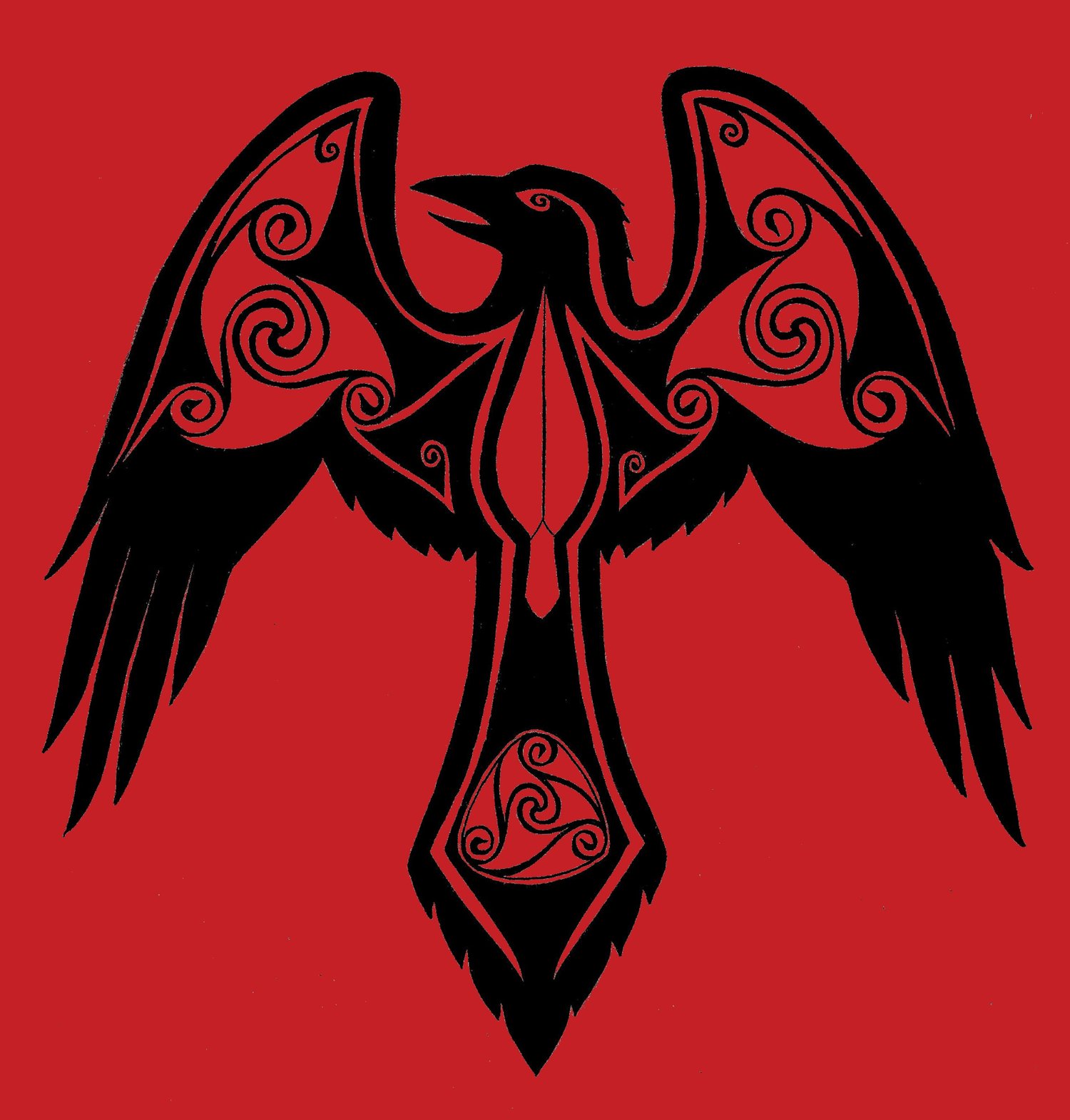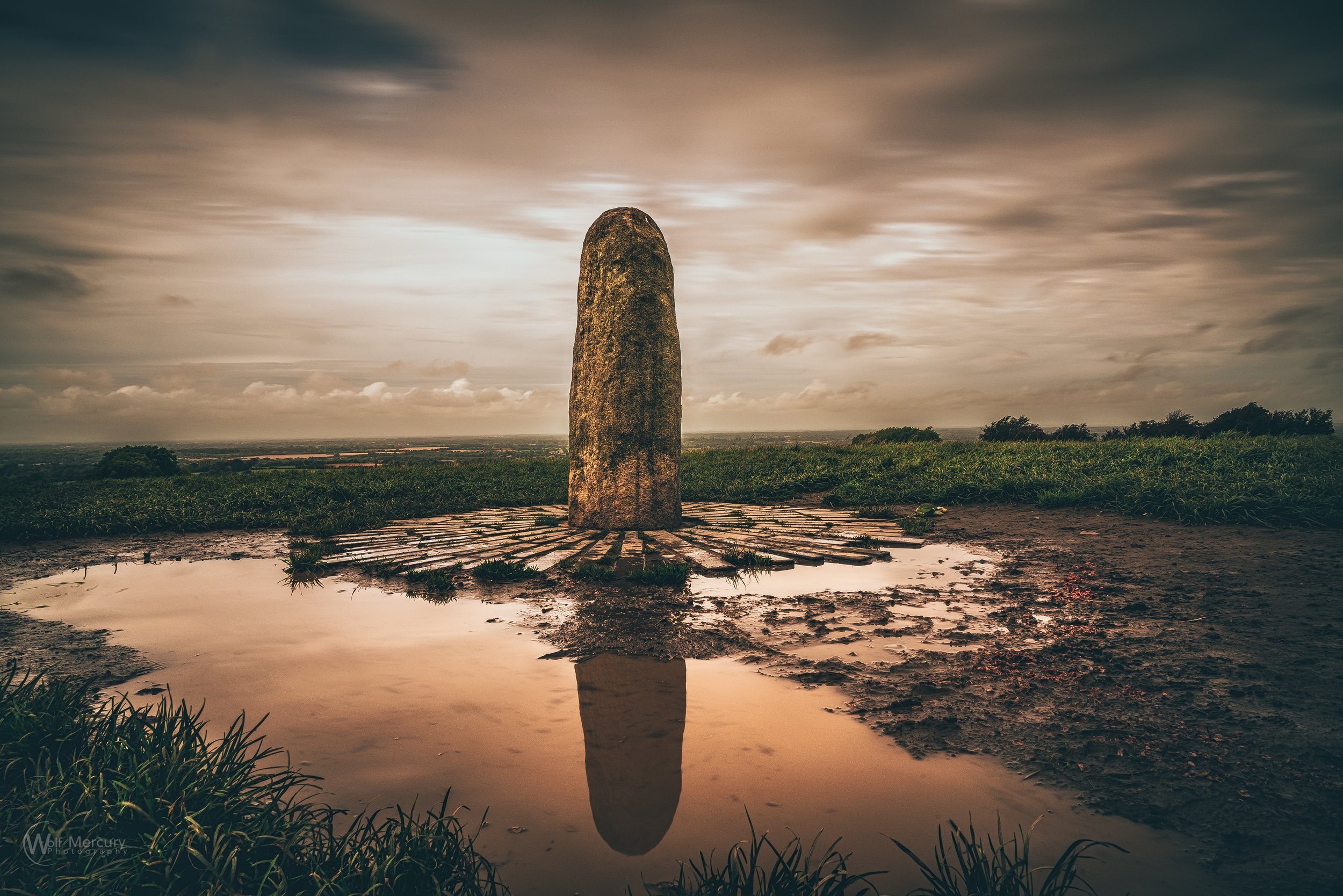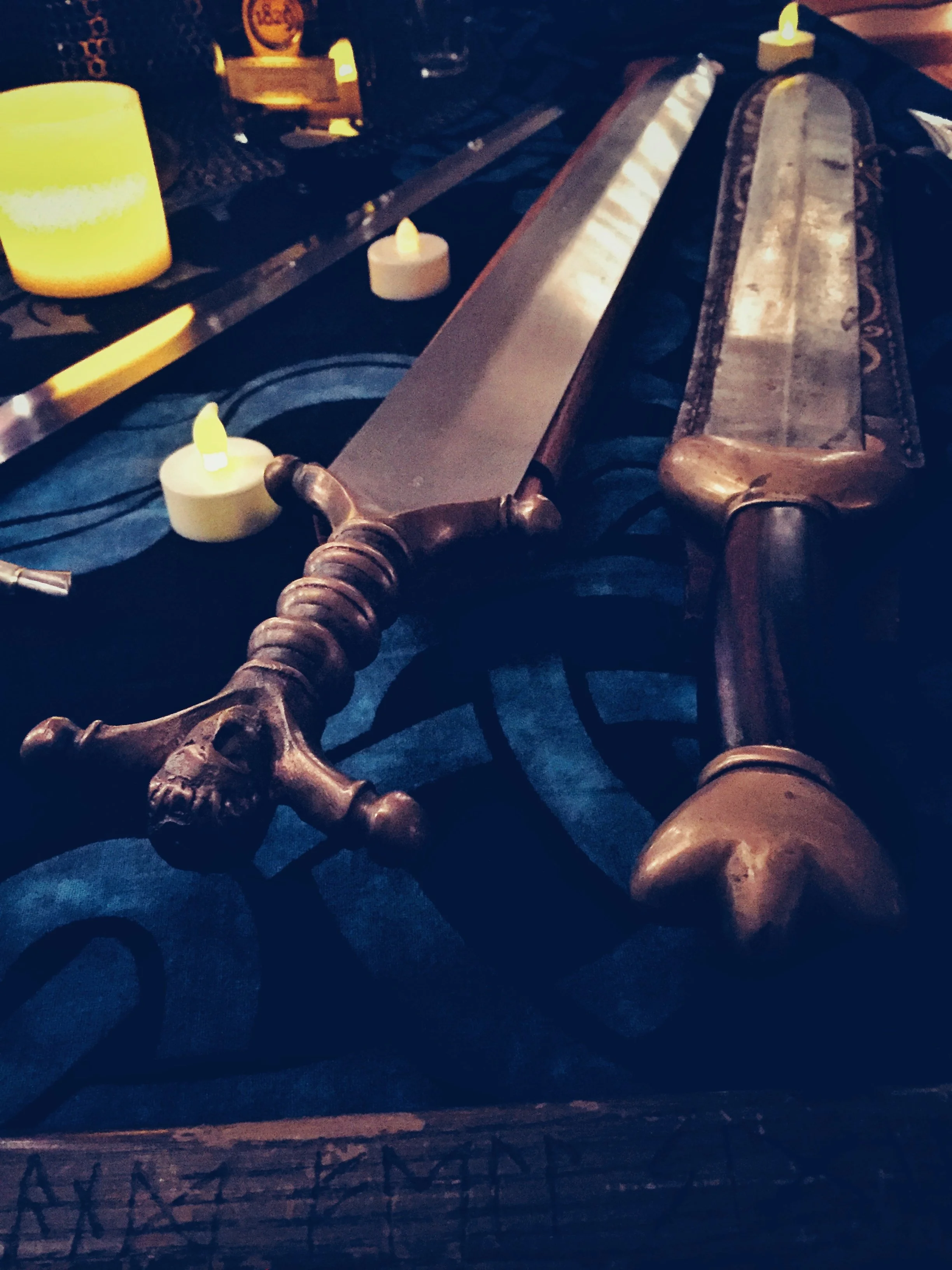
CORE VALUES
Core Values
In our work, the Coru is guided by values distilled from the traditions of Celtic spirituality and myth, the milieu within which the Morrígan’s lore and identity arose. We express these core values through a four-fold structure based in the lore and symbolism of the Four Treasures of the Tuatha Dé Danann from the Irish mythological and heroic tales.
Warriorship & the Spear
The core value of Warriorship is embodied in the Spear of Lugh, a magical spear of which it was said that a battle would never go against whoever had it in their hand. Lugh was known as the “many skilled” God who was recognized by the Tuatha Dé Danann for His mastery of all skills. A warrior seeks to constantly refine their skill and discipline so that they are optimally beneficial to their community. Warriorship, in the light of this Treasure, is a concept that goes far beyond battle or violence. It is a way of action that strives to face issues directly with honor and dignity. Just as a spear is cast or thrust in a direct line to its target, a warrior faces problems or adversaries in a manner that embodies honor, dignity, and personal accountability. Whether it be a physical conflict, a verbal confrontation or a problem that must be surmounted, a warrior confronts that issue in a way that is true to their honor while also recognizing that same honor and personal dignity of that which they are engaging. To enter a confrontation with this ethos empowers us to turn problems into solutions and enemies into friends, just as an exceptional spear can turn the tide of a battle and a true warrior can create a victory where there was only defeat.
Warriorship as a spiritual practice involves fighting for what you believe in and defending those that can’t defend themselves. Historically, the warrior codes were created to channel aggression and chaos and transform them into a force that stabilized and protected the community. A warrior is one who is at peace with themselves and in harmony with with their social as well as their natural environment. A warrior’s primary function is to defend the community against that which strives to abuse and destroy it, with their lives should that be necessary. To this end, we believe that a martial practice is essential to practicing warriorship. Physical conditioning and martial practice shape one’s mind and body for this goal. A warrior must learn to step into the fray unafraid of personal injury or death with the goal of protecting others as their motivation.
Warriorship can be defined as “Love in Action”: fighting for what you value. As all practitioners of the martial and meditative disciplines know, what you practice in the body, you cultivate in the mind. When you practice yoga, the mind becomes supple, centered, energized. When you practice meditation, the mind becomes clear, calm, attuned. When you practice the fighting arts, the mind becomes resilient, resolute, indefatigable, alive with survival instinct. It is a practice that creates strength in kinship, survival skill, and ability to defend what we love.
Sovereignty & the Stone
Sovereignty, in its historical context, was understood as a power arising from nature itself, from the identity of the land and its people. Sovereignty was a numinous power within the land, which was vested in the person of the ruler by the source of the power, personified as the Goddess of Sovereignty. The Stone of Destiny, called the Lia Fáil, is an embodiment of Sovereignty, and in lore this stone was said to cry out under the true sovereign. Sovereignty was thus the soul of the land speaking through the stone. The lore of sovereignty teaches that it is intimately connected with integrity, as it was believed that when the sovereign’s integrity was compromised, s/he could no longer rule. Similarly, if the sovereign was unjust or unfit, both land and people suffered. Sovereignty conveys a model of power where the only true authority arises from integrity.
As a distillation of these myths, we hold the value of sovereignty to be paramount as the basis for authentic spiritual practice and right action on an individual level, through the practice of personal sovereignty. When we engage the depth of our own true nature and when we stand with the integrity of a true sovereign, we access that numinous power from nature itself, and we are able to take hold of the authority of our own lives and step into sovereignty. The practice of personal sovereignty means a commitment to authenticity, to just, honorable and truthful actions with self and others, and above all to respecting the inherent, sovereign authority and responsibility of each individual for his/her own being, beginning with ourselves. When we are strong in the practice of personal sovereignty, we cannot be less than authentic and powerful; we cannot submit to false authority; and we cannot insult the integrity of our own souls or another’s.
Service & the Sword
The value of service is embodied by the Sword of Nuada, a sword of kingship of which it was said that none might escape it when it was drawn from its scabbard. We see the sword also appear as the sword of kingship which is conferred by the Goddess of Sovereignty. In the Celtic mythological and heroic tales, the great swords are intimately tied to concepts of sacred kingship, sacrifice, and service. The story of Nuada, for whom the sword in the Four Treasures is named, is a story of sacred kingship undertaken as a path of service and personal sacrifice. Nuada was the king and leader of the Tuatha, but when he was wounded with the loss of his hand in battle, he voluntarily relinquished kingship in favor of a new sovereign who would be better suited to rule. When Nuada regained his full power with the replacement of his hand, he re-assumed the mantle of kingship.
These myths speak of a model of leadership undertaken as a path of service, rather than in the interest of personal pride and self-aggrandisement. We recognize service as a value at the core of our work as a priesthood and as individuals. Priesthood, as with any form of leadership or empowered sovereignty, must be undertaken in the spirit of service. Only when our work arises from a desire to be of service rather than to rule, can we truly wield the Sword as the tool and weapon of kingship. The power of the Sword teaches us that true sovereignty is a path of personal sacrifice, as we must act from a commitment to the well-being and protection of that which is in our care above concern for ourselves, and it is from that commitment to service that authority arises.
Hospitality & the Cauldron
The vessel of hospitality in our value system is the Cauldron of the Dagda, of which it is written in the lore that no company ever went away from it unfulfilled. This Cauldron is a cauldron of plenty, of nourishment, which feeds all who come to it, regardless of who they are. This lore carries within it the Celtic value of hospitality. In ancient Celtic societies, hospitality customs were held in extremely high importance. To offer hospitality to a guest was not only expected, but also conferred strong protections upon the guest, because the act of offering hospitality was understood to engender a bond of kinship between host and guest that then bound them to mutual obligations of reciprocity.
As priests following a path of service to our people, we hold the value of kinship and the ethic of hospitality that flows from it, to be of high importance. We strive to fulfill the needs of our communities as the Dagda’s cauldron fed all those who came to it hungry, for those whom we are committed to serving are our kin. We also hold the value of kinship as a statement of connectedness with all beings, plant, animal, human, and Otherworldly. We affirm our kinship with all peoples, regardless of race or ethnicity, and our responsibility to act in respect of that kinship in a way that expresses care and honor toward our fellow beings. And we affirm the connectedness of the living with both the ancestors in whose steps we follow and the descendants, those who will come after us and inherit the world we make for them.




